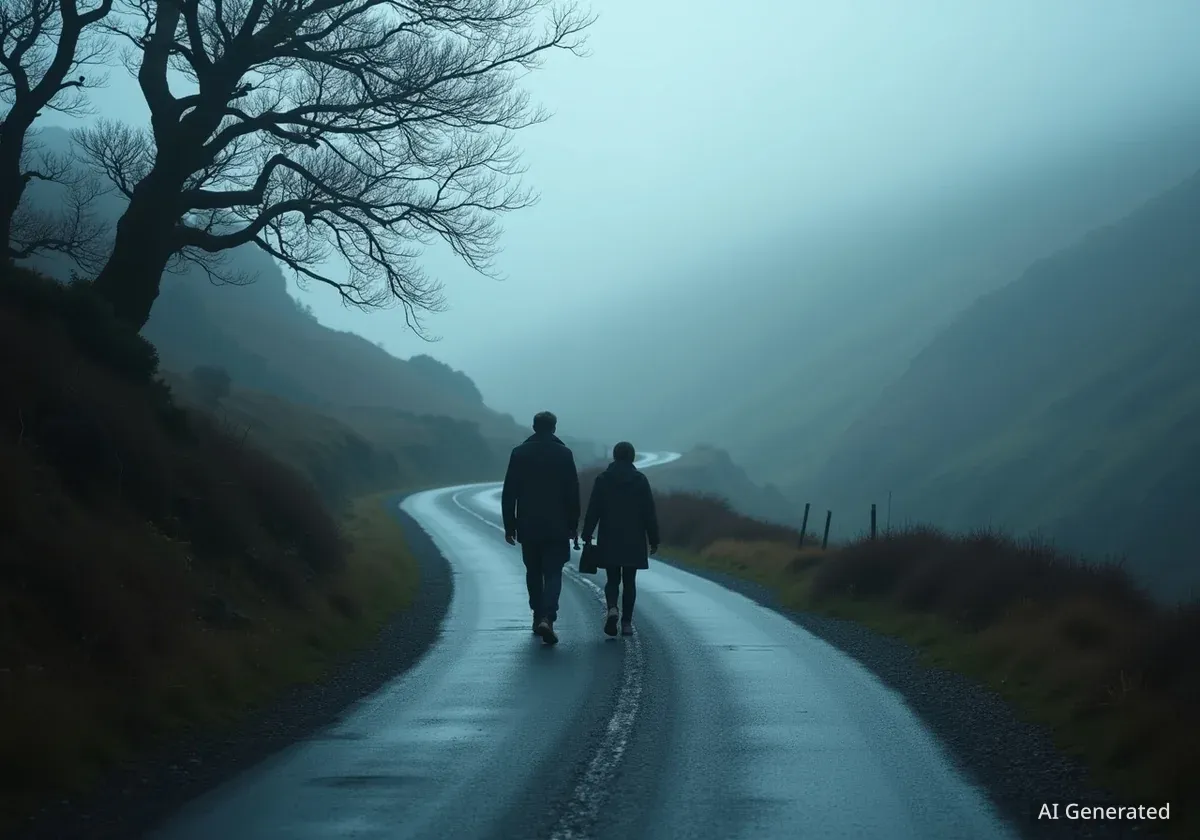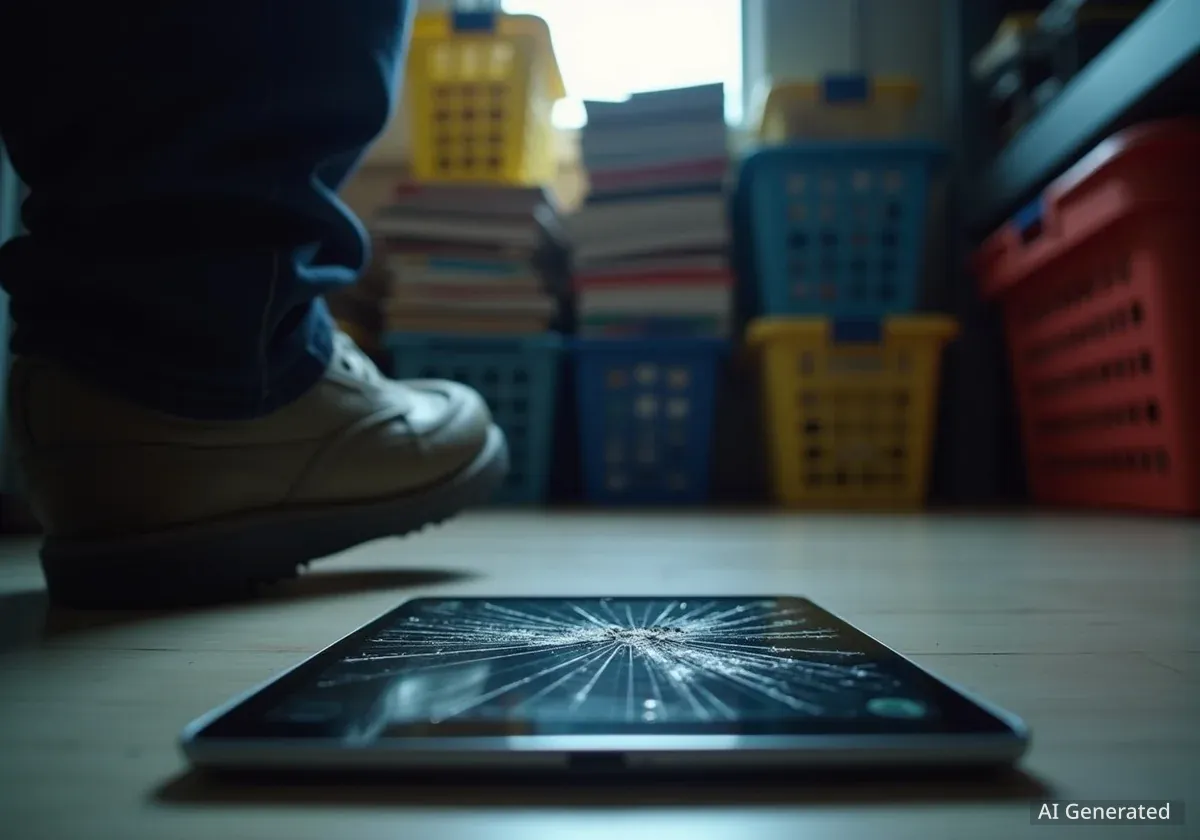A journalist's recent trip to Scotland with his father, who is over 90 years old, became an unexpected exploration of memory, aging, and the enduring strength of family connections. Initially hesitant about the journey, the son discovered profound meaning not only in spending time with his father but also through the surprising reactions of fellow travelers.
The experience, originally planned as a simple cruise around the Scottish isles, evolved into a powerful reflection on shared history and the quiet anxieties that accompany caring for an aging parent. It highlighted how simple acts of togetherness can resonate deeply, both personally and with those who witness them.
Key Takeaways
- A son reluctantly joined his father, aged over 90, for a cruise through the Scottish isles, including the Shetlands and Orkneys.
- Throughout the trip, fellow passengers repeatedly approached the son to commend him for traveling with his father, sparking personal reflection.
- The journey prompted the son to recall significant childhood memories, reinforcing his connection to his father's lifelong influence.
- A moment of separation near the end of the trip offered a poignant glimpse into the future and the inevitability of loss.
An Unconventional Adventure
For journalist Richard Coe, adventure typically meant backpacking and camping—activities defined by physical exertion, quiet landscapes, and a modest budget. When his father proposed a cruise to Scotland, Coe’s initial reaction was one of apprehension. He viewed cruise ships as restrictive environments, fearing boredom and a lack of genuine experience.
He initially offered a common excuse: uncertainty about getting time off from work. The underlying reasons were more complex, rooted in a preference for a different style of travel and a fear of being confined at sea. However, the opportunity to spend significant time with his father, now in his nineties, ultimately outweighed his reservations.
A Legacy of Exploration
Coe’s father, a retired lawyer, has a long history of adventurous travel. After his wife passed away several years ago, he continued to explore the world alone. His solo journeys included trips to Iceland, Switzerland, and Kenya. On one trip, he understated his age to be eligible for a hot air balloon ride and got remarkably close to a lion, demonstrating a persistent desire for new experiences despite his advanced age.
This history of independence and courage was a key factor in Coe’s decision. While he had worried about his father traveling alone, he had never voiced these concerns. The Scottish cruise presented a chance to participate in one of these adventures, providing both companionship and a measure of reassurance.
Life Aboard the Cruise
Once the journey began, the dynamic between father and son quickly became apparent. Coe’s father, despite his labored stride, remained socially driven. He insisted that they eat their meals with different people each time, eager to connect with fellow passengers.
Coe, describing himself as more risk-averse and shy, was initially hesitant about this forced socialization. "I am not sure they want us to join them," he recalled saying. Yet, his father’s gentle persistence prevailed, leading to numerous shared dinners with new acquaintances. This contrast highlighted their different personalities but also the father's enduring desire for human connection.
The trip was not merely social. The itinerary provided a rich educational experience. They learned about the critical role of peat in carbon sequestration and the history of maritime heroes who resisted the Germans in Norway during World War II. Tours of whiskey distilleries and views of Scotland’s dramatic landscapes offered further engagement.
Journalistic Habits
True to his profession, Coe found it difficult to switch off his journalistic instincts. He admitted to constantly fact-checking the statements made by tour guides, an ingrained habit that persisted even during a personal vacation. This provided a unique lens through which he experienced the journey.
The Unexpected Echo of Strangers
A surprising pattern emerged as the cruise progressed. On multiple occasions, other passengers would approach Coe with a specific message. After it happened five times, he stopped keeping count.
"I wanted to tell you how wonderful it is for you to be traveling with your father like this. You are a good son."
This sentiment was echoed by several people. One man confided that he was unsure if his own son would agree to such a trip if he were to ask. These unsolicited comments struck Coe, who felt the praise was not entirely earned given his initial reluctance to go.
He typically thanked them and shifted the conversation, never correcting their perception. Yet, the consistency of the feedback suggested that their shared journey touched upon a broader societal value—the importance of honoring and spending time with elderly parents. The simple act of a son traveling with his father was seen by others as an admirable, and perhaps increasingly rare, gesture.
Memories Resurfacing
The extended time together allowed for deep reflection and conversation. Coe was reminded of the foundational experiences his father had provided him. He told his father that it was he who had taught him to love the outdoors through backpacking and camping trips.
Specific memories came to the forefront:
- Waking up to icicles inside their tent during a winter camping trip in the Appalachians.
- Crashing a Ski-Doo on a frozen lake, after which his father’s immediate instruction was: "Don’t tell your mother."
- His father’s creativity in making stop-motion home movies, including one where a tiny Santa Claus figure appeared to dance around the house.
These conversations bridged the decades, connecting the present journey with a shared past. The trip became more than a tour of Scotland; it was a review of a lifetime of moments, big and small, that had shaped their relationship.
A Moment at Glasgow Cathedral
The trip’s emotional peak occurred on one of the final days during a bus tour stop at the Glasgow Cathedral. The path to the cathedral was across cobblestone streets made slick by rain—a challenging walk for his father. He opted to remain on the bus.
For the first time in two weeks, Coe walked alone. As he moved toward the cathedral, he felt a distinct void. He described it as a feeling that "something was missing in the space just off to my left." It was a physical sensation of his father's absence.
This brief moment of solitude served as a powerful metaphor. It was a temporary taste of an inevitable future, a reminder of the finite nature of their time together. Coe concluded with the hope that the day when that feeling becomes permanent would be later rather than sooner, a simple yet profound wish for more time with his father.




